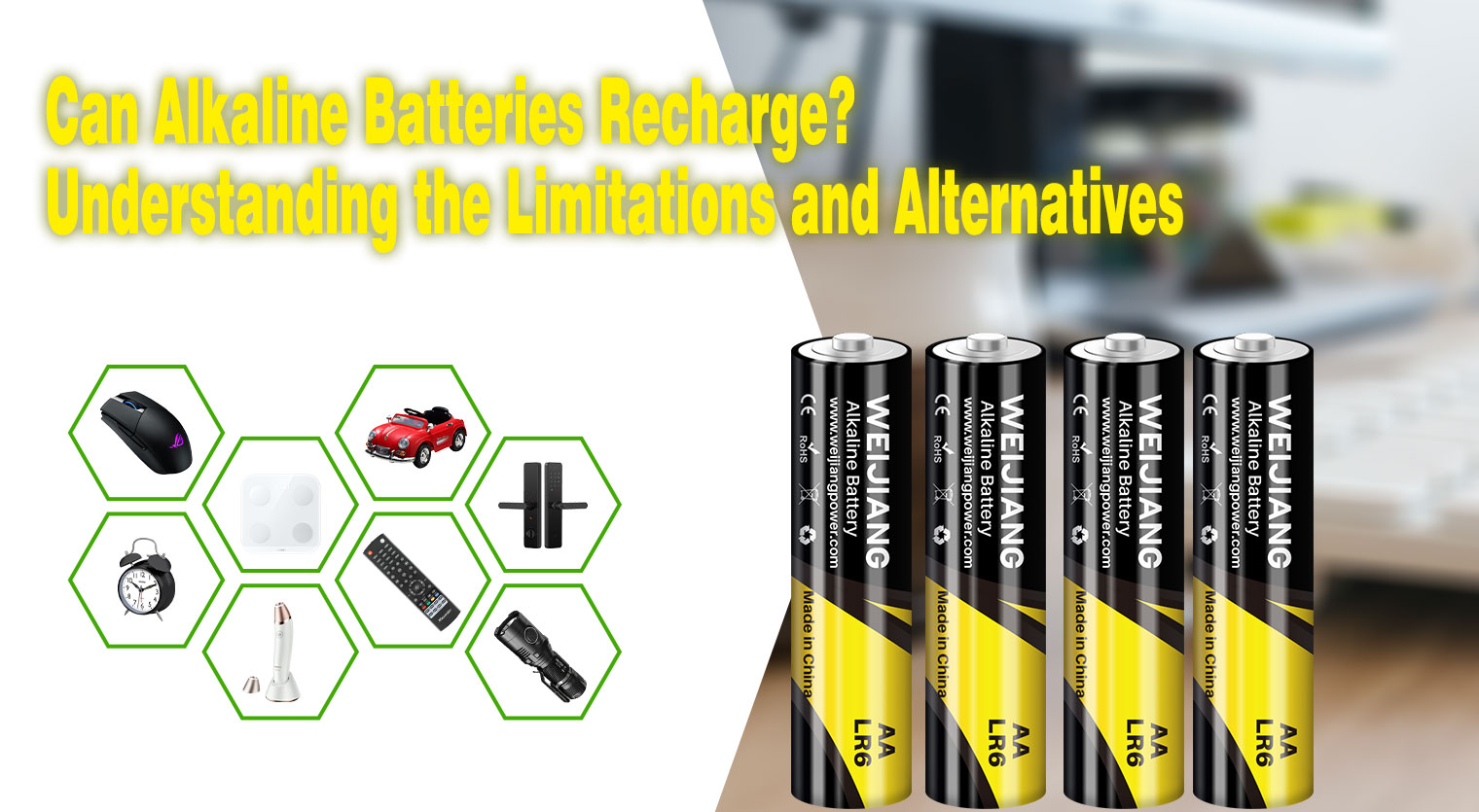Alkaline batteries are commonly used in a wide range of electronic devices due to their long shelf life and reliable performance. However, one question that often arises is whether alkaline batteries can be recharged. In this article, we will explore the rechargeability of alkaline batteries, discuss their limitations, and provide alternative options for those seeking rechargeable solutions.

The Nature of Alkaline Batteries
Alkaline batteries are non-rechargeable batteries that utilize alkaline electrolytes, typically potassium hydroxide (KOH), to generate electrical power. They are designed for single use and are not intended to be recharged. Alkaline batteries are known for their stable voltage output and ability to deliver consistent power throughout their lifespan. They are widely used in household devices such as remote controls, flashlights, and portable radios.
Why Alkaline Batteries Cannot be Recharged
The chemical composition and internal structure of alkaline batteries do not support the recharging process. Unlike rechargeable batteries, such as Nickel-Metal Hydride (NiMH) or Lithium-ion (Li-ion) batteries, alkaline batteries lack the necessary components to efficiently store and release energy repeatedly. Attempting to recharge alkaline batteries can lead to leakage, overheating, or even rupture, posing safety risks.
Recycling Alkaline Batteries
While alkaline batteries are not rechargeable, they can still be recycled to minimize their environmental impact. Many countries and regions have established recycling programs to handle the disposal of alkaline batteries properly. Recycling centers can extract valuable materials from used alkaline batteries, such as zinc, manganese, and steel, which can be reused in various industries. It is essential to check local regulations and guidelines for the proper disposal and recycling of alkaline batteries to ensure responsible handling.
Alternatives to Alkaline Batteries
For those seeking rechargeable options, there are several alternatives to alkaline batteries available on the market. These rechargeable battery types offer numerous advantages, such as cost savings and reduced environmental impact. Here are a few popular alternatives:
a. Nickel-Metal Hydride (NiMH) Batteries: NiMH batteries are widely used as rechargeable alternatives to alkaline batteries. They offer higher energy density and can be recharged hundreds of times. NiMH batteries are suitable for devices with moderate power requirements, such as digital cameras, portable gaming consoles, and remote controls.
b. Lithium-Ion (Li-ion) Batteries: Li-ion batteries are known for their high energy density, lightweight design, and longer lifespan. They are commonly used in smartphones, laptops, and other portable electronic devices, providing reliable and rechargeable power.
c. Lithium Iron Phosphate (LiFePO4) Batteries: LiFePO4 batteries are a type of lithium-ion battery that offers enhanced safety and longevity. They are often used in applications that require high power output, such as electric vehicles, solar energy storage systems, and power tools.
Alkaline Battery Care Tips
Proper care and maintenance of alkaline batteries can help optimize their performance and ensure their longevity. Here are some essential alkaline battery care tips:
1. Remove Expired Batteries: Over time, alkaline batteries can leak and corrode, causing damage to the device they are powering. It is crucial to regularly check and remove expired or depleted batteries from devices to prevent leakage and potential damage.
2. Store in a Cool, Dry Place: Alkaline batteries should be stored in a cool, dry location away from direct sunlight and extreme temperatures. High temperatures can accelerate the chemical reactions within the battery, reducing its overall capacity and lifespan. Storing them in a cool environment helps preserve their performance.
3. Keep Contacts Clean: The metal contacts on both the battery and the device should be kept clean and free from dirt, dust, or any other contaminants. Before inserting new batteries, inspect the contacts and gently clean them if necessary. This ensures proper electrical conductivity and enhances the battery's efficiency.
4. Use Batteries in Similar Conditions: It is best to use alkaline batteries with similar power levels together. Mixing new and old batteries or using batteries with different charge levels can lead to uneven power distribution, affecting the overall performance of the device.
5. Remove Batteries from Unused Devices: If a device is not going to be used for an extended period, it is advisable to remove the alkaline batteries. This prevents potential leakage and corrosion, which can damage both the batteries and the device itself.
By following these alkaline battery care tips, users can maximize the lifespan and performance of their batteries, ensuring reliable power for their devices and minimizing the risk of damage or leakage.
Conclusion
Alkaline batteries are not designed to be recharged and attempting to do so can be hazardous. However, recycling programs exist to responsibly dispose of used alkaline batteries. For those looking for rechargeable options, alternatives such as Nickel-Metal Hydride (NiMH) or Lithium-ion (Li-ion) batteries offer superior performance and can be recharged multiple times. By understanding the limitations of alkaline batteries and exploring rechargeable alternatives, consumers can make informed decisions that align with their needs, budget, and environmental considerations.
Post time: Dec-28-2023





